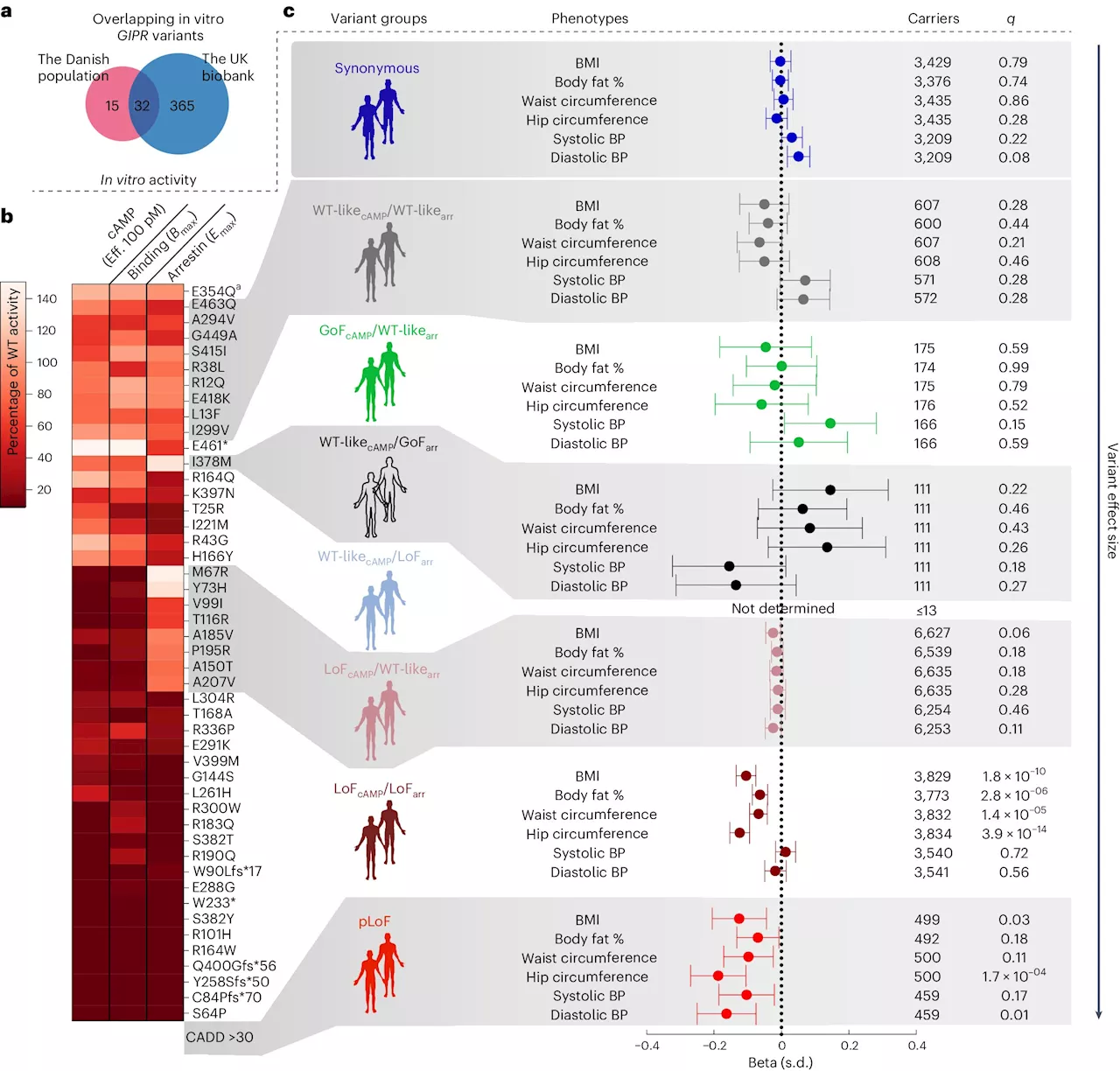Researchers highlight the unprecedented success of GLP-1-based multi-receptor drugs in achieving substantial weight loss and improved health outcomes, potentially replacing bariatric surgery for obesity treatment.
By Hugo Francisco de SouzaReviewed by Susha Cheriyedath, M.Sc.Jul 28 2024 In a recent review published in the journal Cell , researchers collate and elucidate recent research and clinical trials highlighting the mechanistic underpinnings and beneficial outcomes of glucagon-like peptide-1 -based polyagonists.
Background Obesity, clinically defined as a body mass index > 35 kg/m2, is characterized by excessive body fat and presents one of the most pressing public health concerns of the world today. The World Health Organization estimates a current global prevalence of 16% in adults aged 18 and over. In recent decades, the incidence of the condition has been rising at alarming rates – from 4% to 13% of the global population between 1975 and 2014.
The role of glucagon and incretin hormones in weight management As early as 1906, clinicians observed that blood glucose uptake is significantly higher when glucose is absorbed through the gut than intravenous infusion. This suggested the presence and potency of intestine-secreted insulinotropic hormones . Still, it was not until 1973 and 1987 that glucose-dependent insulinotropic polypeptide and glucagon-like peptide-1 were discovered and characterized.
Research and development of GLP-1R agonists – single receptor interventions Despite its substantial in vitro and in vivo benefits, native GLP-1’s use in pharmacological interventions was hampered by its extremely limited half-life , with studies estimating that even in sustained administration, only 10% of active GLP-1 enters general circulation, and even less reaches its target organ – the brain.
“Multiple gut-hormone combinations have been explored preclinically, with an appreciable number having advanced to clinical studies, with unimolecular peptides possessing varying degrees of GLP-1R, GIPR, and GCGR activity constituting the clinically most matured set of drug candidates.”
GLP-1 Surgery Weight Loss Blood Body Mass Index Cell Diabetes Drugs Fatty Liver Glucagon Glucagon-Like Peptide-1 Glucose Glycemia Hormone In Vivo Insulin Kidney Kidney Disease Liver Obesity Public Health Receptor Research Type 2 Diabetes
United Kingdom Latest News, United Kingdom Headlines
Similar News:You can also read news stories similar to this one that we have collected from other news sources.
 Study indicates surge in GLP-1RA prescriptions to treat obesity and prevent its complicationsInvestigators at Cedars-Sinai and other institutions conducted a nationwide, population-based study to identify trends in the use of glucagon-like peptide-1 receptor agonists (GLP-1RAs)—prescription medications sold under popular drug names like Ozempic and Wegovy—in the United States.
Study indicates surge in GLP-1RA prescriptions to treat obesity and prevent its complicationsInvestigators at Cedars-Sinai and other institutions conducted a nationwide, population-based study to identify trends in the use of glucagon-like peptide-1 receptor agonists (GLP-1RAs)—prescription medications sold under popular drug names like Ozempic and Wegovy—in the United States.
Read more »
 GLP-1 drugs found to lower cancer risk in diabetes patientsResearch finds that GLP-1 receptor agonists significantly reduce the risk of 10 out of 13 obesity-associated cancers in type 2 diabetes patients compared to insulins, but show varied results against metformin.
GLP-1 drugs found to lower cancer risk in diabetes patientsResearch finds that GLP-1 receptor agonists significantly reduce the risk of 10 out of 13 obesity-associated cancers in type 2 diabetes patients compared to insulins, but show varied results against metformin.
Read more »
 Sister hormone of GLP-1 could lead to better weight-loss drugsMuch like the Cold War space race, the world's pharmaceutical giants are currently scrambling to produce the best weight-loss drug. They all want to be the first to explore the nooks and crannies of the body in order to be able to design the optimal drug. However, several pharmaceutical giants disagree on what the next step should be.
Sister hormone of GLP-1 could lead to better weight-loss drugsMuch like the Cold War space race, the world's pharmaceutical giants are currently scrambling to produce the best weight-loss drug. They all want to be the first to explore the nooks and crannies of the body in order to be able to design the optimal drug. However, several pharmaceutical giants disagree on what the next step should be.
Read more »
 Exploring the expanding horizons of GLP-1 therapies beyond diabetes and obesityIn a Perspective, Daniel Drucker highlights the growing body of evidence that hints at the potential of glucagon-like peptide-1 (GLP-1)-based medications in treating conditions other than diabetes and obesity, including cardiovascular disease and neurodegenerative disorders.
Exploring the expanding horizons of GLP-1 therapies beyond diabetes and obesityIn a Perspective, Daniel Drucker highlights the growing body of evidence that hints at the potential of glucagon-like peptide-1 (GLP-1)-based medications in treating conditions other than diabetes and obesity, including cardiovascular disease and neurodegenerative disorders.
Read more »
Beyond the anti-obesity benefits of glucagon-like peptide-1 drugsThe advantages of glucagon-like peptide-1 (GLP-1) medicines beyond glycemic and weight control.
Read more »
 Researchers propose new framework for diagnosing obesity based on body fat distribution, not BMIThe system for diagnosing and managing obesity can no longer be about just body mass index (BMI), which is excluding many people who would benefit from obesity treatment.
Researchers propose new framework for diagnosing obesity based on body fat distribution, not BMIThe system for diagnosing and managing obesity can no longer be about just body mass index (BMI), which is excluding many people who would benefit from obesity treatment.
Read more »
